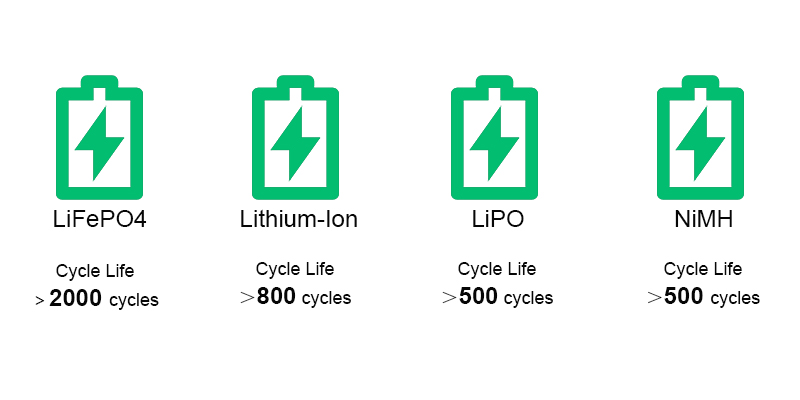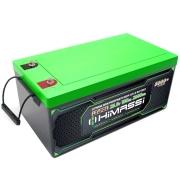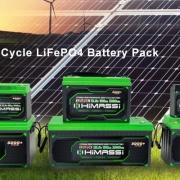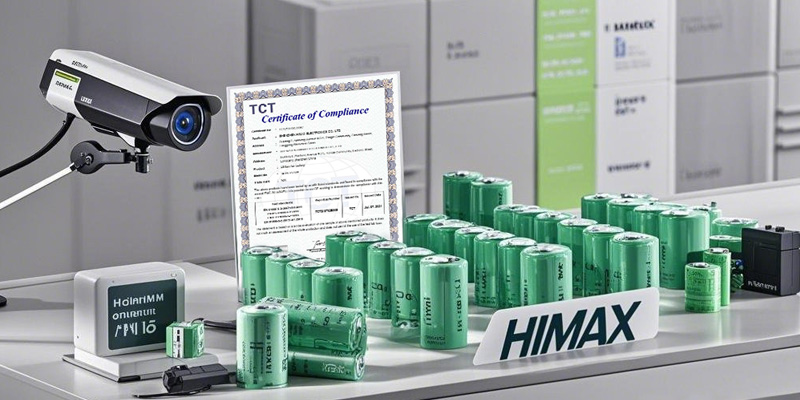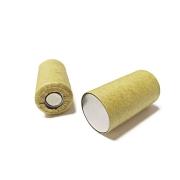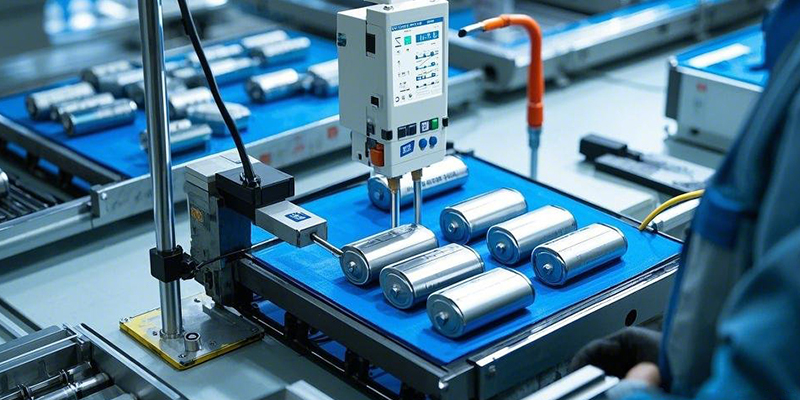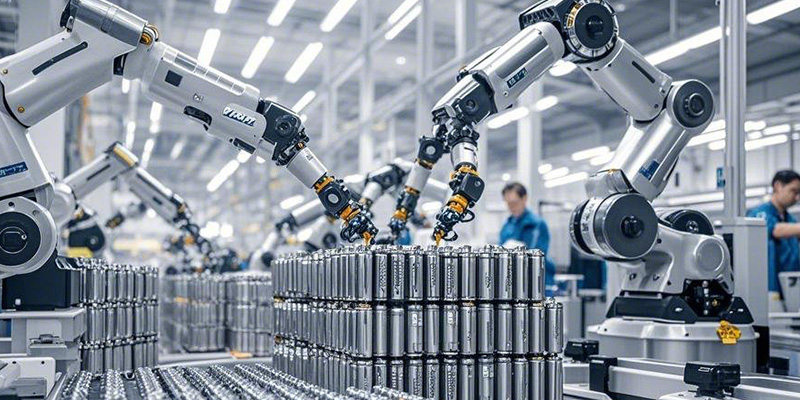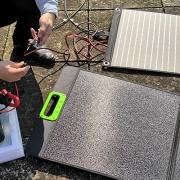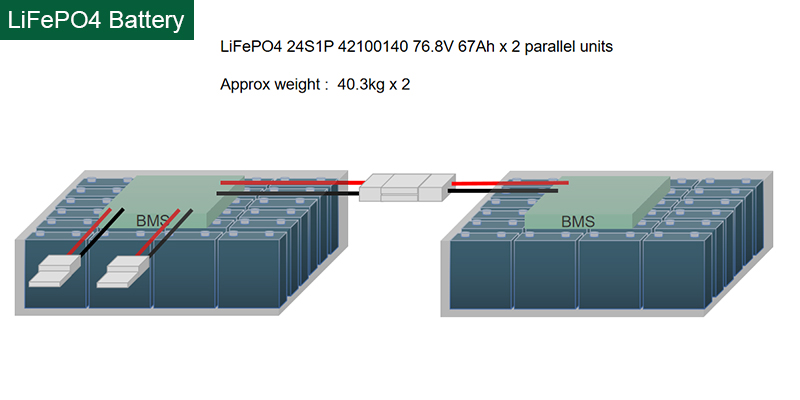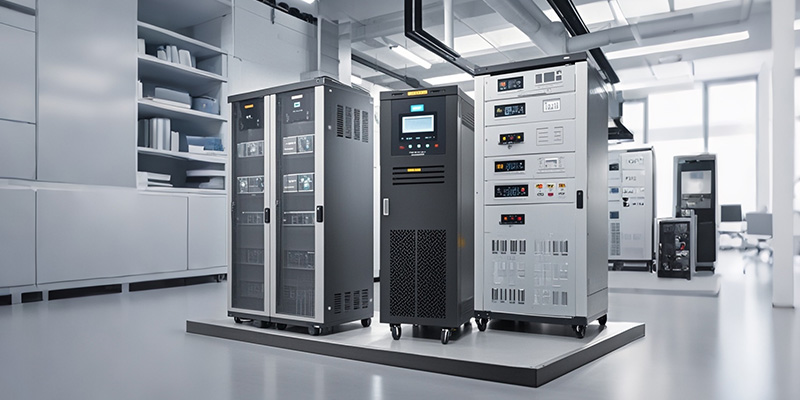Understanding the Differences Between LiFePO4, Lithium-Ion, LiPo, and NiMH Batteries
Introduction
In the world of industrial energy solutions, choosing the right battery type is essential to ensure the longevity, efficiency, and cost-effectiveness of your equipment. With a wide variety of battery types available, including LiFePO4, Lithium-ion, LiPo, and NiMH, it can be challenging to decide which one best fits your needs. Whether you’re looking for batteries for electric vehicles, solar energy storage, medical devices, or high-performance gadgets, understanding the differences between these technologies can help you make an informed decision. In this post, we will compare the key features, advantages, and ideal use cases of these four battery types, and discuss the benefits of custom battery solutions.
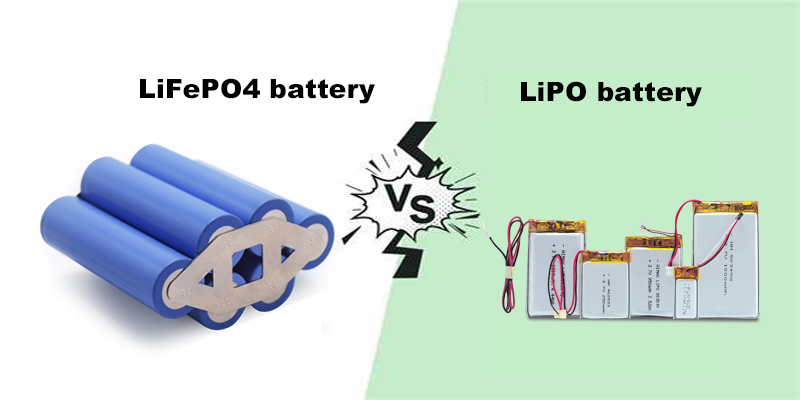
Comparing LiFePO4, Lithium-Ion, LiPo, and NiMH Batteries
LiFePO4 (Lithium Iron Phosphate) Batteries
-
Energy Density: Moderate; suitable for applications requiring high safety and durability rather than ultra-high energy density.
-
Cycle Life: Long, typically over 2,000 cycles, making it ideal for long-term use.
-
Advantages:
-
Safety: Excellent thermal stability and low risk of thermal runaway.
-
Durability: Can withstand harsh environmental conditions, making them suitable for outdoor and heavy-duty industrial applications.
-
Eco-Friendly: Fewer harmful chemicals compared to other lithium-based batteries, contributing to a lower environmental impact.
-
-
Disadvantages: Larger in size compared to other lithium batteries and has a lower energy density.
Lithium-Ion (Li-ion) Batteries
-
Energy Density: High; ideal for applications where space and weight are crucial.
-
Cycle Life: Moderate, typically between 500 and 1,500 cycles.
-
Advantages:
-
High Energy Density: Capable of delivering a large amount of energy in a compact package, making them ideal for portable applications.
-
Lightweight: Perfect for applications such as electric vehicles, drones, and portable devices where weight is a critical factor.
-
High Efficiency: Excellent for applications that require rapid charging and discharging.
-
-
Disadvantages: Higher initial cost and sensitivity to temperature extremes, requiring more complex battery management systems (BMS).
LiPo (Lithium Polymer) Batteries
-
Energy Density: High; designed for lightweight, compact applications that require high discharge rates.
-
Cycle Life: Shorter than Li-ion, typically around 300 to 500 cycles.
-
Advantages:
-
Flexible Design: Can be molded into various shapes and sizes, making them versatile for custom applications.
-
High Discharge Rate: Ideal for applications that require significant bursts of energy, such as drones, remote-controlled devices, and high-performance gadgets.
-
-
Disadvantages: More prone to damage, especially during charging, and requires careful handling to avoid overcharging or overheating.
NiMH (Nickel-Metal Hydride) Batteries
-
Energy Density: Moderate; suited for low to moderate power applications.
-
Cycle Life: Moderate, generally between 500 and 1,000 cycles.
-
Advantages:
-
Environmental Friendliness: NiMH batteries are considered more environmentally friendly compared to lithium-based batteries due to their chemistry.
-
Excellent High-Temperature Performance: NiMH batteries can operate well in higher temperatures, making them suitable for industrial applications that face extreme conditions.
-
Lower Initial Cost: Compared to lithium-ion batteries, NiMH tends to be more affordable, making it a good option for budget-conscious projects.
-
-
Disadvantages: Larger in size and lower energy density compared to lithium-based batteries, making them less suitable for high-performance applications.
Core Keywords: Battery types, LiFePO4 vs Lithium-ion, LiPo vs NiMH, energy density, battery cycle life, chemistry differences
Custom Battery Solutions: Tailoring to Your Business Needs
Each of these battery types has its unique set of characteristics, but when it comes to meeting the specific demands of your business or industrial application, a custom battery solution is often the best choice. Let’s explore the advantages of customizing batteries for your particular needs.
LiFePO4 Battery Customization Advantages
-
Custom Sizes and Capacities: LiFePO4 batteries can be tailored to fit specific energy requirements, ensuring that your industrial equipment runs smoothly without sacrificing space or performance.
-
Specialized Battery Management Systems (BMS): Custom BMS designs can optimize performance and enhance safety for specific industrial applications, such as solar energy storage or power tools.
-
Real-World Applications: From large-scale solar installations to electric vehicles, customized LiFePO4 batteries offer long-lasting, safe, and efficient power for demanding industrial sectors.
Lithium-Ion Battery Customization Advantages
-
High Energy Density Custom Solutions: For applications where performance is paramount, customized Li-ion battery solutions can provide maximum energy output in a compact form.
-
Tailored Battery Enclosures and Connectors: Li-ion batteries can be customized with different casings, connectors, and interfaces to seamlessly integrate into various industrial devices.
-
Fast Charging Solutions: Custom-designed Li-ion batteries can be built with quick-charging capabilities to reduce downtime and increase operational efficiency.
LiPo Battery Customization Advantages
-
Ultra-Lightweight and Flexible Designs: Li-Po batteries can be customized into virtually any shape and size, making them ideal for compact, portable, and highly specialized devices.
-
High Discharge Rate: For applications like drones or remote-controlled vehicles that require powerful bursts of energy, customized LiPo batteries provide the performance necessary to power these devices efficiently.
-
Specialized Packaging: Tailoring the physical structure of LiPo batteries ensures they meet specific space constraints while maintaining high performance.
NiMH Battery Customization Advantages
-
Eco-Friendly Custom Solutions: Ni-MH batteries can be designed for applications where environmental impact is a key concern, such as medical devices or electric bicycles.
-
High-Temperature Customization: If your equipment operates in extreme environments, custom NiMH batteries can be made to endure high-temperature conditions without compromising performance.
-
Affordable Custom Solutions: NiMH batteries are often more affordable to customize, making them a cost-effective solution for a variety of lower-energy applications.
Choosing the Right Battery for Your Business
The ideal battery type for your business depends on several factors:
-
Energy Requirements: For high energy demand and compact applications, lithium-ion or LiFePO4 batteries are often the best choice. For high power demands in small packages, LiPo is the ideal solution.
-
Environmental Factors: If you’re working in extreme conditions, NiMH and LiFePO4 may be better suited to handle high temperatures. For weight-sensitive applications, Li-ion or LiPo batteries excel.
-
Customization Needs: Each battery type can be tailored to meet specific energy and performance needs. Choosing a manufacturer that offers custom battery solutions, like Himax, can help ensure your battery system is optimized for your unique requirements.
Why Choose Himax for Custom Battery Solutions?
At Himax, we offer custom battery solutions tailored to your industrial needs. With over 18 years of experience in battery manufacturing, we specialize in LiFePO4, lithium-ion, LiPo, and NiMH batteries, ensuring that our solutions meet the highest standards of quality, efficiency, and safety. Our offerings include:
-
Customized Battery Packs: We create batteries designed for specific applications, from solar energy storage to robotics.
-
Free Samples: Test our custom solutions risk-free before committing to bulk orders.
-
Global Reach and After-Sales Support: With a strong presence in the U.S., Europe, and beyond, we provide reliable supply chains and excellent customer support.
Contact Us Today to discuss your custom battery needs or request a free sample to see the Himax difference.
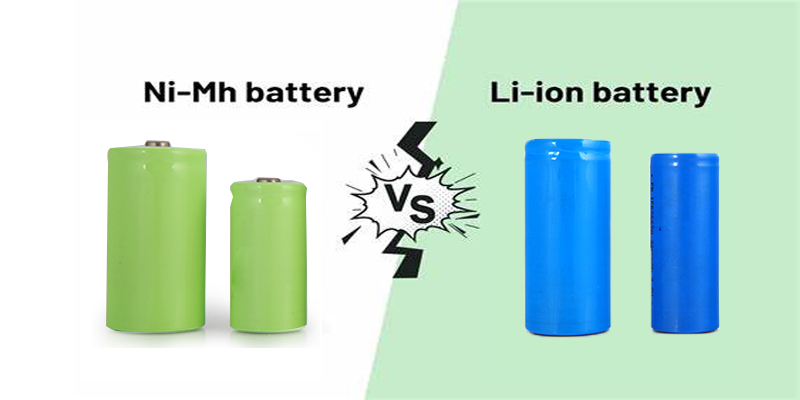
Conclusion
Understanding the differences between LiFePO4, lithium-ion, LiPo, and NiMH batteries is crucial when selecting the right power source for your industrial applications. Each battery type has its own set of benefits, and customizing a battery solution to fit your specific needs can ensure optimal performance, efficiency, and cost-effectiveness. At Himax, we provide tailored solutions to help you meet your energy demands, no matter how unique they may be.
Reach out to Himax today for a consultation on custom battery solutions, or request a free sample to explore the best options for your business.

